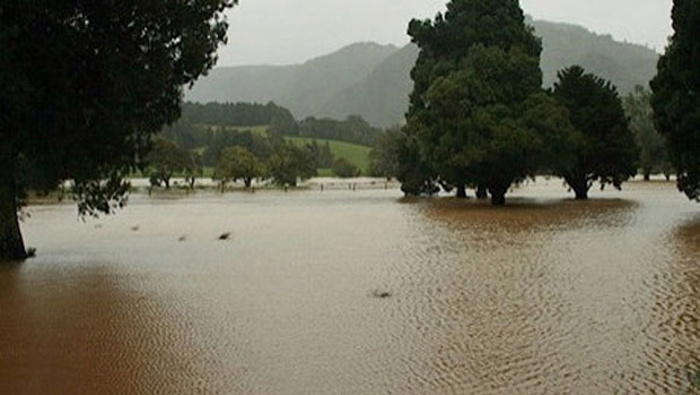The independent review of Hawke’s Bay’s Civil Defence response to Cyclone Gabriel has been completed and it is damning. Former Police Commissioner Mike Bush conducted the investigation and released the findings yesterday.
MB: You know, there's a lot of experts out there, a lot of people who do know how this should be done, and I think all those people stand ready to provide advice and support. One of the things we said in the report was the current national model and the way it works in with regional/local does set good people up to fail. So, we've, we've got to look after those people, but the resources and the capability and experiences out there, what we've got to do is have a model that actually leverages all that, coordinates that, and gets it in as soon as possible.
So, there are good people and they are set up to fail. Basically, the review found the region was not well prepared for a natural disaster of this scale. Would anyone have been prepared for that? Unlikely, but basically the review said you have to plan for the worst-case scenario. It was unlikely it would have been on that scale. It did occur on that scale, and thus the worst-case scenario should have been planned for.
It found the severity, speed and scale of the disaster overwhelmed the officials involved in the response. They thought that they knew how to do Civil Defence because they'd been through Covid-19. This natural disaster was nothing like Covid-19. They had no idea what to do.
It's not just Hawke’s Bay though. Mike Bush found the National Emergency Management system is not currently fit for purpose, so we should all be concerned. He said a complete overhaul of the system is needed. That's something that's been recommended for years. And Hawke’s Bay Civil Defence said they absolutely accepted the findings and were ready to do a complete overhaul of the system. Although having heard the train wreck of an interview on Heather's show last night with Hinewai Ormsby, who's the chair of Hawkes Bay Civil Defence Emergency Management’s joint committee, I do wonder how effective that overhaul is going to be.
HO: So, the recommendations from today, we agreed, and we added them. That we’d get an independent implementation team and leadership team, to be able to take these recommendations.
HDPA: I’m asking you this question because I’m slightly alarmed that you don’t know the details.
HO: Well, no, we’re fully committed to the recommendations and implementing change.
I mean Hinewai Ormsby may well be a very effective human, but when it comes to communicating, she had a bad attack of the Costers, and I had absolutely no idea what she was talking about in the bureaucratic speak. None. And surely in a crisis, clear communication is absolutely vital. If you've got a bad attack of bureaucratese, it's going to be very tricky to get information out and get information out quickly and expeditiously.
Nonetheless, they have said that they will implement the findings, but when you're being let down by the national civil defence structure, which is not fit for purpose, how effective are you going to be? The National Emergency Management Agency has not yet released its review into the weather events of last year - that is due out in December, and that will probably make for more grim reading.
The review of Hawke’s Bay’s response also pointed to a number of precautionary measures that may have mitigated some of the damage. The dredging to remove excess shingle, the managing of forestry slash, the flood protection maintenance, all of which a number of you callers and texters said needed to be done. Yet you'd said it before Cyclone Gabrielle, and you certainly said it afterwards. These were things that you had pointed to, and when you look at Auckland's floods, a number of people pointed to the fact the drains hadn't been maintained and cleared that they quickly became blocked, causing tiny rivulets to become rivers.
So, there is much that can be done in terms of prevention, in terms of maintenance, and then in terms of the response to the emergency. But when it comes to civil defence emergencies, how prepared are you? Because I think it also shows that ultimately, we are on our own. And when I say ‘we’, I talk about as small communities, as neighbourhoods, helping each other out. It may be very, very difficult for other people to get to you, and we learnt that from Christchurch, and we've learnt that from a number of natural disasters. That the advice is always to be prepared for two to three days of managing on your own. And to be perfectly honest, having heard just how fundamentally unsound, the national system is.
To hear the word soup from the chair of the civil defence response unit in Hawke’s Bay, are we better off coming up with a neighbourhood plan and relying on each other? Yes, Civil Defence is there. Yes, there are very good people there who are being let down by the management of the system. But ultimately, I think surely the lessons we've learned from numerous emergencies that the country has experienced is that for the first 24 hours to 48 hours, we are on our own.
So how prepared do you think you are? Were you all Gung Ho after Christchurch, as I was, with the first aid kit, with the water, with the tin cans, with the disinfectants, with the water purification? And now that's all out of date and needs to be biffed out. Other people relying on other people in a natural disaster, other people are busy digging themselves out too, and their families.
So how prepared are you? How much should be on a national emergency disaster response team? And how much should we be looking after ourselves?
Take your Radio, Podcasts and Music with you










